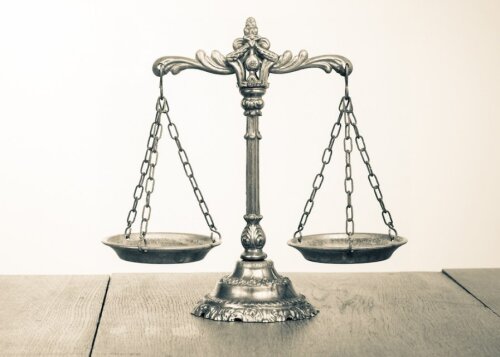Best Landlord & Tenant Lawyers in Perm
Share your needs with us, get contacted by law firms.
Free. Takes 2 min.
Free Guide to Hiring a Real Estate Lawyer
List of the best lawyers in Perm, Russia
About Landlord & Tenant Law in Perm, Russia
This guide gives a practical introduction to landlord and tenant matters in Perm, Russia. Landlord and tenant relationships in Perm are governed primarily by federal law - the Civil Code and the Housing Code - together with regional and municipal rules that affect housing provision, utility supply, and registration. In Perm you will encounter both private market rentals and municipal housing, each with different procedural rules. Key themes are contract terms, payment and utilities, maintenance and repairs, state registration of certain agreements, and court enforcement for disputes. Whether you are a tenant or a landlord, understanding your written agreement and keeping clear records is essential.
Why You May Need a Lawyer
Housing disputes often mix legal, factual and procedural issues. You may need a lawyer if you face any of the following situations:
- Eviction threats or court proceedings initiated by the landlord or the tenant.
- Disputes over unpaid rent, deposits, damage to property, or utility charges.
- Complex contract drafting or negotiations for long-term leases, subleases or commercial use of residential premises.
- Illegal actions by a landlord, such as changing locks, cutting utilities or attempting forced removal.
- Disagreements about who must pay for major repairs, renovations or building defects.
- Problems with registration of residence or disputes involving municipal or social housing.
- Enforcement of a court judgment or interaction with bailiffs.
A lawyer helps assess legal rights, prepare correct documents, represent you in court and during enforcement, and advise on practical remedies or alternative dispute resolution.
Local Laws Overview
Below are the key legal points that commonly affect landlord and tenant relationships in Perm:
- Governing rules - Residential relationships are governed mainly by the Civil Code and the Housing Code at the federal level. Perm-specific municipal regulations and building rules can affect services, standards and municipal housing procedures.
- Types of leases - Parties can enter fixed-term leases or open-ended leases. The contract should clearly state rent, term, notice periods, obligations for repairs and utilities, and conditions for termination.
- State registration - Lease agreements for real estate with a term exceeding one year must be state-registered. Registration protects parties against third-party claims and is required for certain legal actions.
- Deposits - Security deposits are common but not capped by a specific federal rule. Practice in Perm usually limits deposits to a few months rent. The contract should state conditions for return and any allowable deductions.
- Rent changes - Unless the contract allows indexation or increases, rent cannot be raised unilaterally during a fixed-term lease. For municipal housing or social contracts, different rules may apply.
- Repairs and habitability - Landlords are generally responsible for major structural repairs and ensuring habitability. Tenants must keep the premises in good condition and perform minor maintenance. Disagreements are often resolved through written notices and, if necessary, court action.
- Utilities and communal services - Responsibility for utility payments should be specified in the contract. In many multiunit buildings, residents pay for shared services based on meter readings or established shares.
- Eviction and enforcement - Landlords cannot evict tenants by force. Eviction requires a court decision. Special legal protections exist for certain categories of tenants, such as families with minor children, which can affect eviction timing and procedure.
- Registration of residence - Tenants often need to register their place of residence with local authorities. Landlords may be required to permit registration when occupancy is lawful.
- Evidence and inventories - Move-in and move-out inventories, photo evidence, and payment records are crucial when disputes arise.
Frequently Asked Questions
Can a landlord evict me without a court order?
No. A landlord cannot lawfully evict a tenant by force or by changing locks without a court judgment. If a landlord attempts to force you out, document the actions, contact the police if there is unlawful entry or threats, and consult a lawyer to seek emergency relief and protect your rights.
What must be included in a rental agreement?
A written rental agreement should include the parties names and identities, address of the premises, lease term, rent amount and payment method, deposit terms, responsibility for utilities and repairs, notice periods for termination, permitted use of the premises, rules on subletting, and signatures. For leases longer than one year, include provisions needed for state registration and consider an inventory of the property condition.
Do I have to state-register my lease in Perm?
If the lease of real property is for a term longer than one year, it generally must be registered with the state registration authority. Registration secures rights against third parties and is recommended for landlords and tenants in long-term arrangements. Short-term leases for under one year normally do not require state registration.
How should utility payments be handled?
Utility payment responsibility should be set out in the contract. Many agreements require tenants to pay utility bills directly or to reimburse the landlord upon presentation of receipts. Keep copies of payment receipts, meter readings and any correspondence about disputed charges. In multiunit buildings, checks of meter readings and communal charges are important when allocating shared costs.
What can I do if the landlord refuses to make necessary repairs?
First, give the landlord written notice describing the problem and requesting repair within a reasonable time. Keep copies of the notice and any responses. If the landlord fails to act, you may be able to arrange the repair yourself and seek reimbursement if the contract or law allows, or bring a claim in court for enforcement and damages. For serious threats to health or safety, contact the local housing inspection authority and consult a lawyer promptly.
How long does a landlord have to return my deposit?
There is no single nationwide deadline prescribed by law, so the contract should state the return period. In practice, landlords typically return the deposit soon after the lease terminates and after accounting for unpaid rent or documented damage. If the landlord delays or wrongfully withholds the deposit, you can send a written demand and, if necessary, sue in court for return plus interest and damages.
Can the landlord increase rent during my lease?
Not during a fixed-term lease unless the contract allows it or both parties agree. For indefinite leases, the contract should set out notice and indexation rules. For municipal or social housing, special statutory procedures may apply. Any unilateral change without legal basis can be challenged in court.
Am I allowed to sublet the apartment?
Subletting depends on the lease terms and the kind of occupancy. Many contracts require the landlord's written consent before subletting. For municipal housing, subletting rules are often stricter or prohibited. If you plan to sublet, obtain written permission and document the arrangement to avoid disputes.
What documents and evidence are important if I plan to sue?
Gather the lease agreement, inventory or condition reports, proof of identity and ownership, payment records and receipts, correspondence with the other party, photos or videos of damage, notices sent or received, and any expert reports or inspection findings. The more documentary evidence you have, the stronger your case will be.
Where can I file a complaint about unlawful actions by my landlord or tenant?
For contractual disputes, a civil claim is usually filed with the local district court. For unlawful eviction attempts or criminal acts, contact the police. For housing code violations or unsafe conditions, file a complaint with the regional State Housing Inspectorate or municipal housing department. Execution of court judgments is handled by the Federal Bailiff Service - regional branch.
Additional Resources
Below are local and federal bodies and types of organizations that can help with landlord and tenant issues in Perm:
- Regional branch of the Federal Service for State Registration, Cadastre and Cartography - for state registration of rights and lease agreements.
- Perm City Administration - housing department - for municipal housing rules and local service issues.
- State Housing Inspectorate of Perm Krai - for complaints about unsafe housing, maintenance and communal services.
- Perm regional courts - for filing civil claims related to rent, eviction and damages.
- Federal Bailiff Service - Perm branch - for enforcement of court decisions.
- Regional bar association and local law firms - to find qualified housing law lawyers and advocates.
- Notary offices in Perm - notarization and assistance with registration formalities for certain transactions.
- Public legal aid centers and legal clinics - for free or low-cost initial legal assistance if you qualify.
- Consumer protection and public oversight bodies - for disputes involving service providers or utilities.
Next Steps
If you need legal help in a landlord or tenant matter in Perm, follow these practical steps:
- Collect documents - gather the lease, payment evidence, inventory reports, correspondence, photos and any notices you or the other party sent.
- Review the contract - read key clauses on rent, duration, deposit, repairs and termination to understand your position.
- Try to resolve the issue directly - send clear written requests and keep copies. Mediation or a negotiated settlement can be faster and cheaper than court.
- Seek legal advice - consult a lawyer who handles housing law in Perm. Ask about fees, likely outcomes and timelines. If you cannot afford private counsel, contact a public legal aid service.
- Preserve evidence - document dates, conversations and actions. Take photos and save receipts and messages.
- File formal complaints if necessary - complaints to the housing inspectorate, the municipal housing department or the police may be appropriate depending on the problem.
- Prepare for court if needed - your lawyer will help draft a claim, collect evidence, and represent you at hearings. Remember that enforcement of judgments requires interaction with the bailiff service.
Act promptly. Some claims are subject to limitation periods and enforcement difficulties increase with delay. Getting early legal guidance will help you choose the best route and protect your rights in Perm.
Lawzana helps you find the best lawyers and law firms in Perm through a curated and pre-screened list of qualified legal professionals. Our platform offers rankings and detailed profiles of attorneys and law firms, allowing you to compare based on practice areas, including Landlord & Tenant, experience, and client feedback.
Each profile includes a description of the firm's areas of practice, client reviews, team members and partners, year of establishment, spoken languages, office locations, contact information, social media presence, and any published articles or resources. Most firms on our platform speak English and are experienced in both local and international legal matters.
Get a quote from top-rated law firms in Perm, Russia — quickly, securely, and without unnecessary hassle.
Disclaimer:
The information provided on this page is for general informational purposes only and does not constitute legal advice. While we strive to ensure the accuracy and relevance of the content, legal information may change over time, and interpretations of the law can vary. You should always consult with a qualified legal professional for advice specific to your situation.
We disclaim all liability for actions taken or not taken based on the content of this page. If you believe any information is incorrect or outdated, please contact us, and we will review and update it where appropriate.










